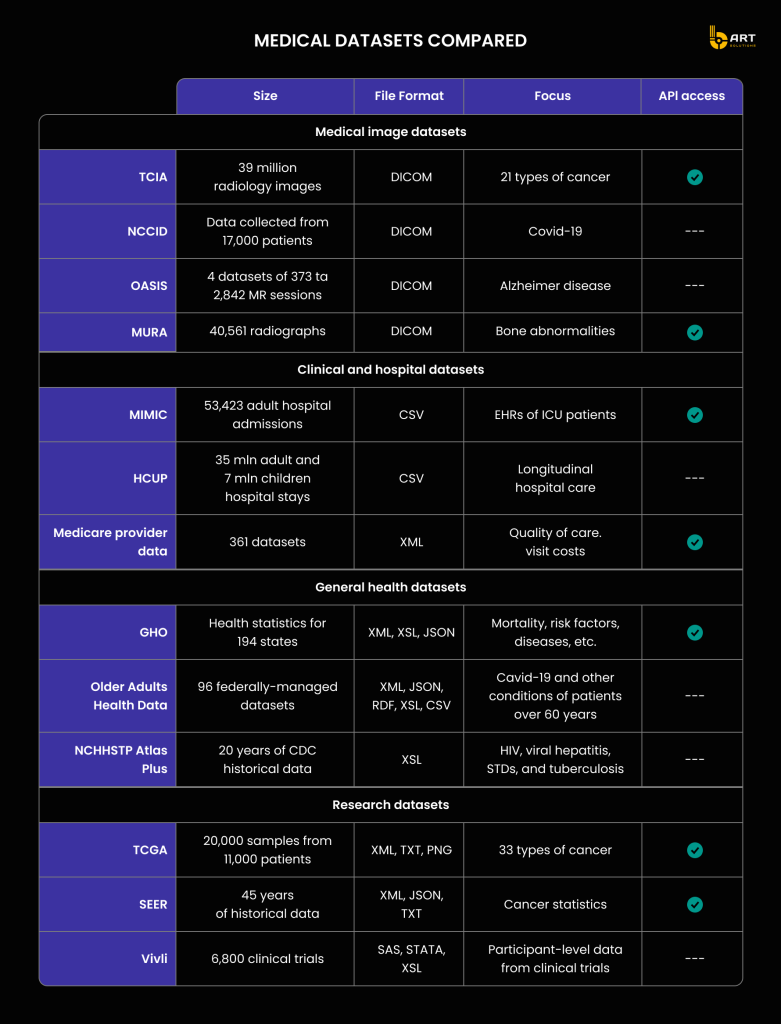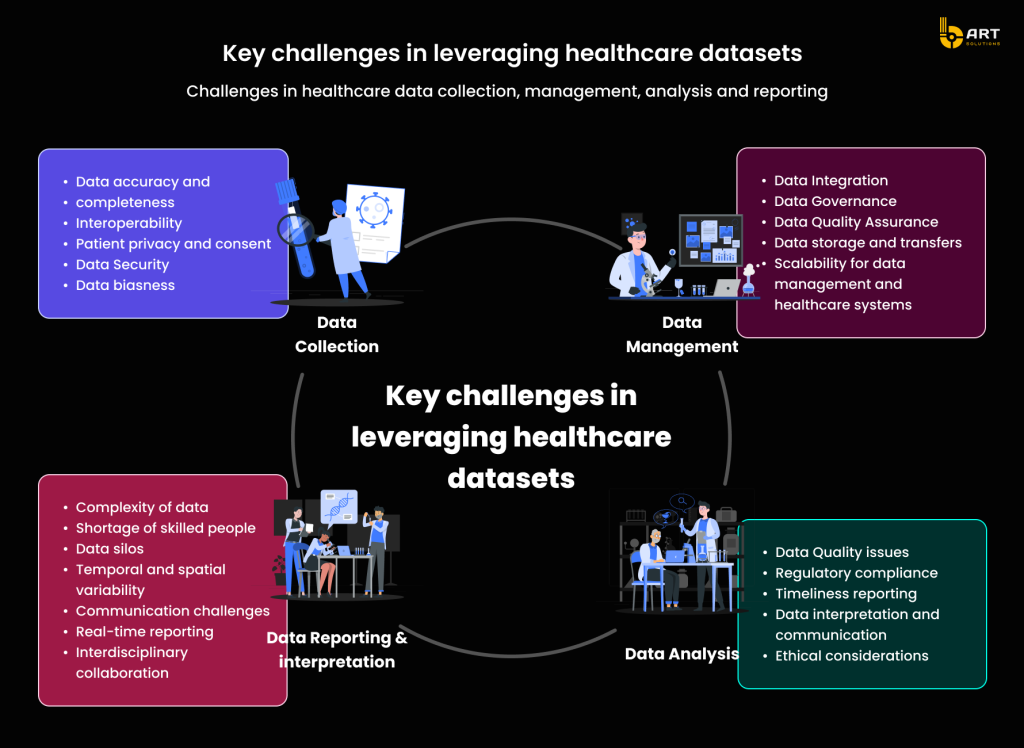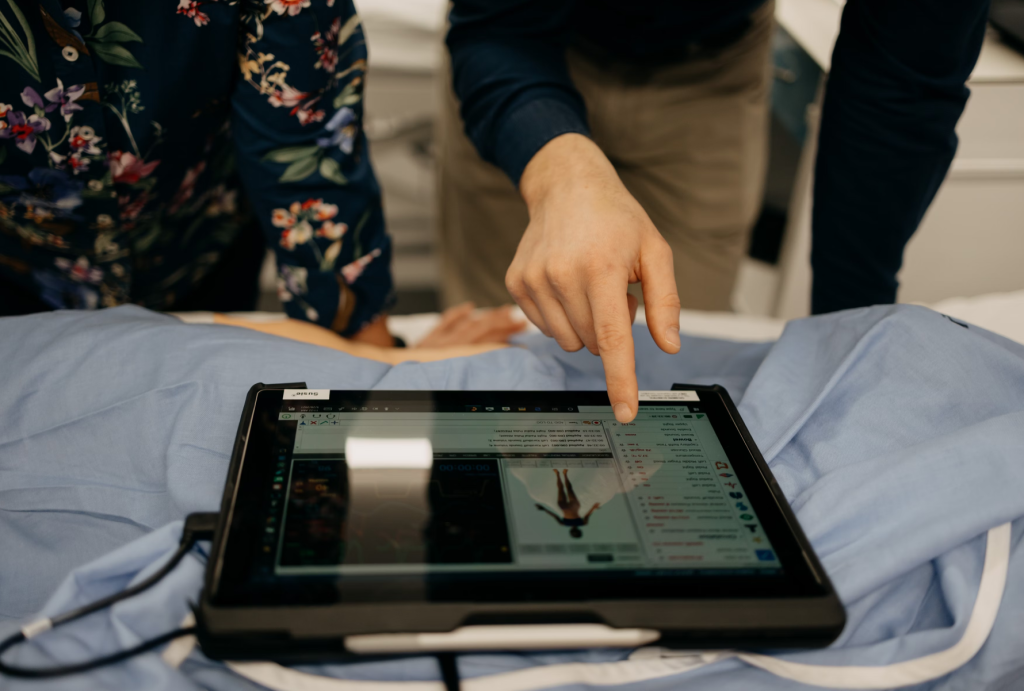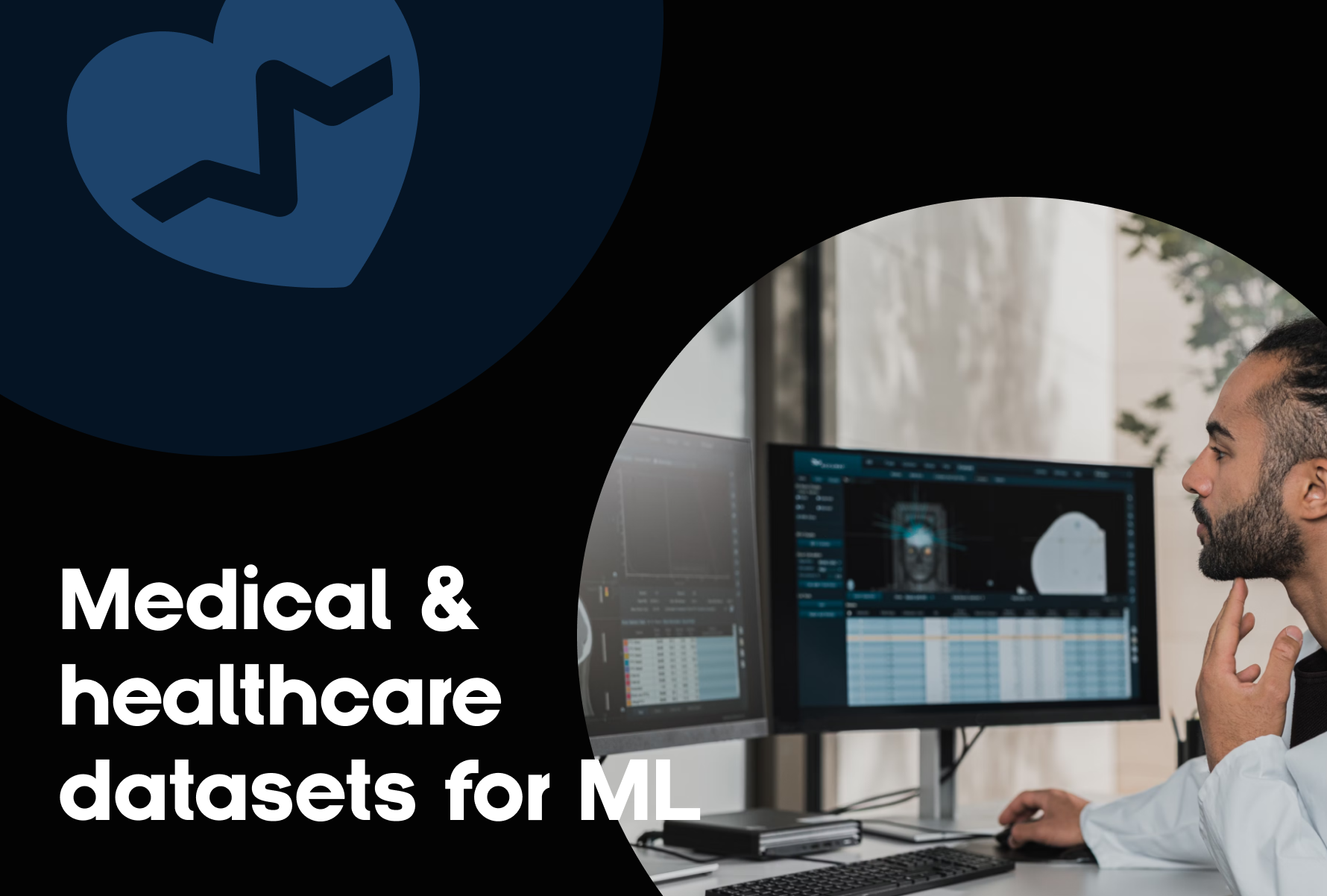According to Grand View Research, the global market for artificial intelligence in healthcare is projected to expand at an annual growth rate of over 37% from 2023 to 2030. This growth reflects more than just a passing phase — it’s a response to pressing clinical needs. Machine learning in healthcare supports everything from cancer detection to hospital resource planning outperforming traditional methods in both speed and accuracy. However, these advanced models can only be as good as the healthcare datasets that train them.
Diverse, and carefully curated data fuels innovations such as predictive analytics, personalized medicine AI, and modern machine learning solutions for healthtech startups. Without reliable input whether it’s medical imaging datasets, health insurance claims datasets, or electronic health records datasets — even the most complex algorithms struggle to produce meaningful insights.
Understanding healthcare datasets
In the US healthtech market, data sources include national health institute datasets, open-source healthcare datasets, and secure commercial repositories. Healthtech startups and established providers alike rely on EHR data integration and healthcare interoperability to assemble these inputs into standardized forms that machine learning models can understand.
Healthcare data is very diverse, encompassing:
- Imaging data: Medical imaging datasets from CT, MRI, and X-ray scans support computer vision tools that aid radiologists in detecting conditions like strokes or tumors.
- Genomic data: Genomic data for precision medicine provides insights into genetic variants that influence treatment responses.
- Real-time IoT device data: Wearables and remote sensors generate real-time healthcare data, offering continuous patient monitoring and timely interventions.
- Health insurance claims dataset: Billing and reimbursement information that offers insights into healthcare costs, utilization patterns, and coverage details.
- National health institute datasets: Publicly available, large-scale research data compiled by organizations like the U.S. National Institutes of Health (NIH).
- Mental health machine learning dataset: Specialized data focusing on behavioral health metrics, patient surveys, and treatment outcomes for mental health conditions.
Understanding how to access healthcare datasets for AI in the US whether through partnerships, licensing, or public repositories is an essential step in building effective machine learning software solutions.

Yet, no matter the source, raw data requires refinement before it becomes truly valuable. The correct structure of health data is fundamental: well-organized datasets reduce errors, streamline model training, and facilitate EHR data integration across various platforms. When done right, it sets the stage for innovations like real-time healthcare data monitoring, genomic data for precision medicine, and advanced population health management strategies.
Key challenges in leveraging healthcare datasets

Data privacy and security
Protecting data privacy is a top priority in healthcare. Regulations like HIPAA and CCPA impose strict controls on how patient information can be stored, used, and shared. Ensuring HIPAA-compliant data handling and employing best practices for handling healthcare data privacy (e.g., encryption, anonymization) are essential.
Data fragmentation
Healthcare interoperability issues arise when data is siloed across various systems. Fragmentation impedes EHR data integration and complicates merging diverse datasets — from health insurance claims dataset records to national health institute datasets — into ML training sets. This lack of standardization can hinder the development of healthtech models for predictive analytics and slow down AI deployment.
Data quality and labeling
Poor data quality leads to inaccuracies in machine learning models in healthcare. Inconsistent labeling, incomplete patient histories, and erroneous entries reduce model reliability. High-quality, annotated datasets that incorporate domain-specific expertise are essential for training AI to recognize patterns accurately. Without proper labeling, even cutting-edge personalized medicine AI can fall short.
Access to data
Open-source healthcare datasets may not always offer sufficient depth or representativeness, while private repositories can be expensive. This limited accessibility makes it harder to build scalable AI solutions for healthcare.
Bias and representativeness
Overcoming bias in medical datasets is crucial for ethical AI in healthcare. Datasets that lack demographic diversity produce models that work well for some groups but fail others. Ensuring datasets represent varied populations is the cornerstone to creating inclusive machine learning solutions that deliver fair outcomes.
Scalability and real-time processing
The growing volume and velocity of real-time healthcare data from wearable devices and IoT sensors create significant scalability challenges. Handling large datasets or streaming data at scale demands robust infrastructure and efficient data pipelines. Without these, AI for hospital resource optimization and real-time decision-making are impossible.
Addressing the challenges
Data privacy and governance
Enforce robust data governance with encryption, anonymization, and continuous monitoring. Working with HIPAA-compliant data partners and adhering to strict privacy policies protects patient trust. Data sharing agreements can clarify responsibilities and mitigate legal and ethical risks.
Interoperability standards
Adopting standards like HL7 FHIR streamlines healthcare interoperability, simplifying EHR data integration. When systems exchange information in standardized formats, models can draw from comprehensive, up-to-date data.
Ensuring data quality
Regular data audits, thorough cleaning processes, and well-defined labeling protocols produce high-caliber training sets. Engaging clinicians or trained annotators familiar with specialty data, for example, in oncology or mental health, improves the reliability of machine learning models in healthcare.
Bias mitigation
To reduce bias, training datasets should include underrepresented groups. Fairness audits and model performance need to be tracked across demographic subgroups. Synthetic data generation and collaboration with community health centers can help build more balanced datasets, supporting ethical AI in healthcare.
Microsoft technologies empower healthcare data management
Microsoft’s Azure Health Data Services and its built-in FHIR APIs simplify healthcare interoperability, making it easier to combine diverse datasets into unified patient records. Businesses can deploy their models directly on Azure’s cloud platform, ensuring seamless scaling and compliance with strict data protection laws. Using Microsoft’s AI and data analytics tools, healthcare teams can perform real-time analytics on large, complex datasets, speeding up decision-making and improving model accuracy. Microsoft’s platform also supports secure data sharing, which encourages collaborative research and development of new treatments.
bART Solutions boasts Microsoft-certified developers with deep expertise in the healthcare domain. Our team can help integrate complex data pipelines, ensure compliance with healthcare standards, and develop AI-driven models that enhance clinical care, reduce costs, and streamline operations. Contacting us is the first step in bringing your healthcare project to life.
Case studies of machine learning in healthcare

Tempus: Advancing precision oncology
Tempus, a healthcare technology company based in Chicago, has assembled one of the world’s largest clinical and molecular databases to improve cancer care. By integrating genomic data, clinical records, and imaging results, Tempus creates comprehensive patient profiles. These datasets feed machine learning tools that help oncologists predict which treatments are more likely to be effective. Tempus reports that its data-driven recommendations have supported personalized treatment strategies in numerous cancer centers, enabling targeted therapies that align with individual patient genetics
LeanTaas: Optimizing hospital operations
LeanTaas leverages predictive analytics in healthtech to streamline hospital operations. Its tools use large electronic health records datasets and health insurance claims datasets to predict patient volumes, operating room usage, and infusion center bottlenecks. As a result, hospitals have seen about 30% reductions in patient wait times and more balanced staff workloads.
Aidoc: Enhancing radiological diagnosis
Aidoc relies on medical imaging datasets to build AI solutions that help radiologists detect critical abnormalities in scans. By rapidly flagging urgent cases, Aidoc’s tools shorten the time from image acquisition to diagnosis. A large U.S. health system using Aidoc’s platform reported faster identification of strokes and brain bleeds, translating into faster interventions and improved patient outcomes. Speeding up this workflow can lead to fewer diagnostic errors and more efficient use of radiologist expertise
Biofourmis: Real-time remote patient monitoring
Biofourmis integrates wearable device data and EHR data integration efforts to enable real-time monitoring of patients with heart failure and other chronic conditions. Its machine learning models anticipate patient deterioration, allowing clinicians to intervene early. One health system that partnered with Biofourmis observed a reduction in hospital readmissions among high-risk patients. By analyzing continuous streams of data, Biofourmis supports clinicians in delivering personalized care plans that match each patient’s evolving condition.
Key trends in healthcare data science

Big data and precision medicine
The integration of big data into healthcare has paved the way for precision medicine, a personalized approach to treatment. By analyzing massive datasets that include genetic profiles, clinical histories, and lifestyle information, healthcare providers can design treatments tailored to each patient. This shift moves away from traditional one-size-fits-all strategies, enabling more accurate diagnoses and targeted therapies.
Healthcare data visualization
With the exponential growth of healthcare data, effective visualization tools are becoming indispensable. Advanced visualization techniques, such as interactive dashboards and 3D imaging, help healthcare professionals interpret complex data with clarity.
Data visualization also enhances patient engagement, by presenting medical information in visually accessible formats, patients can better understand their health status, treatment options, and progress.
Personalized healthcare through predictive analytics
Predictive analytics enables early detection of potential health concerns. For instance, algorithms analyzing historical health data can identify patterns that signal the onset of specific conditions, prompting preventive actions or lifestyle recommendations. This proactive approach not only enhances patient care but also streamlines healthcare operations, contributing to greater efficiency and cost-effectiveness.
To learn even more about medical datasets, their limitations and impact, explore this article.
